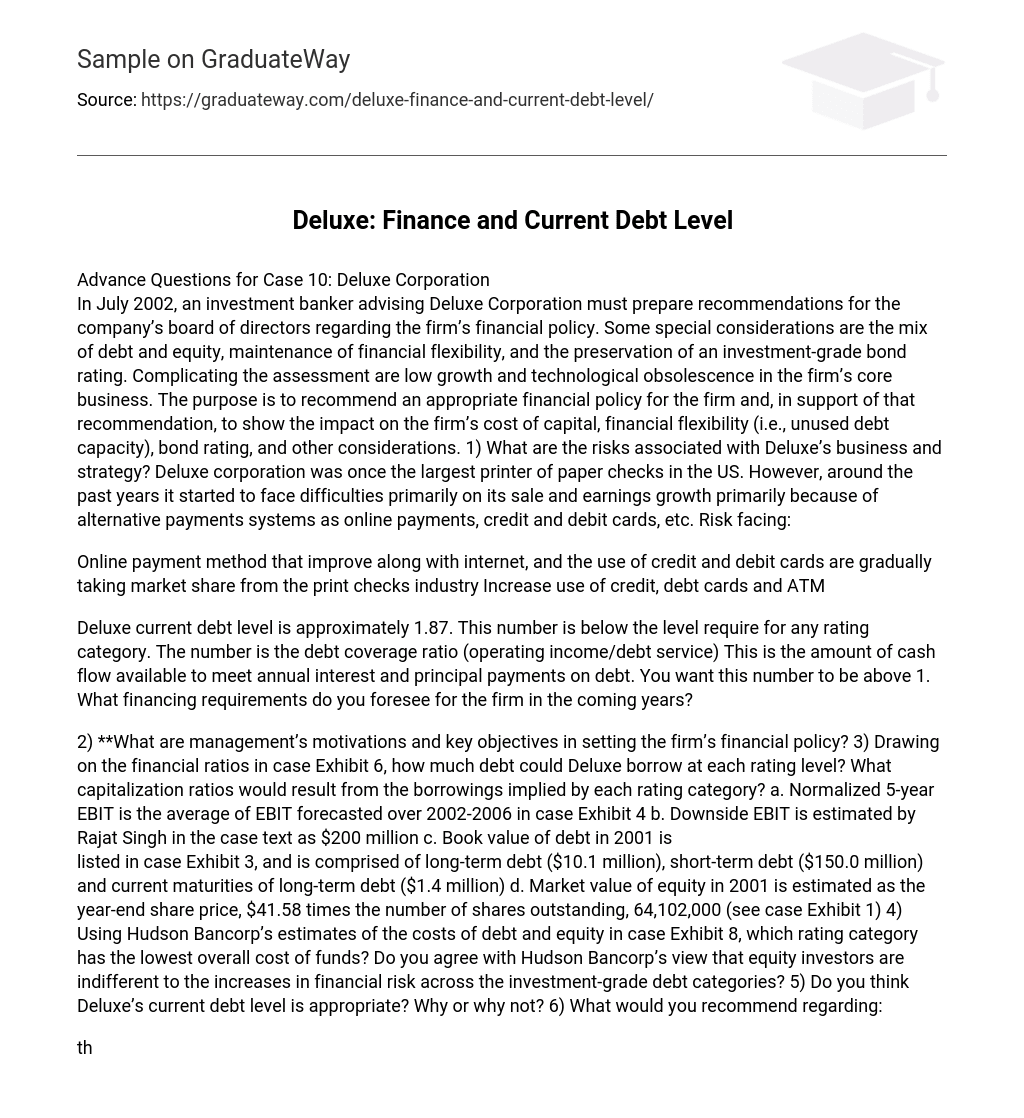Advance Questions for Case 10: Deluxe Corporation
In July 2002, an investment banker is tasked with advising the board of directors of Deluxe Corporation on the firm’s financial policy. The recommendations should focus on the mix of debt and equity, maintaining financial flexibility, and preserving an investment-grade bond rating. Additionally, the assessment needs to address the challenges posed by low growth and technological obsolescence in the company’s core business. The objective is to propose a suitable financial policy and demonstrate its impact on factors such as the firm’s cost of capital, financial flexibility (including unused debt capacity), bond rating, and other relevant considerations.
1) What risks does Deluxe Corporation face in its business and strategy? Previously known as the largest printer of paper checks in the US, Deluxe Corporation has faced difficulties in recent years due to various factors including alternative payment systems like online payments, credit cards, and debit cards. The risks it faces encompass:
With the advancement of the internet, online payment methods have improved. The increased use of credit and debit cards is gradually replacing the traditional print checks industry. Additionally, ATM usage has also seen a rise.
The debt level of Deluxe is currently below the required level for any rating category, standing at 1.87. This signifies that the debt coverage ratio, which is obtained by dividing the operating income by the debt service, is also low. In simpler words, it reflects the cash flow available to fulfill annual interest and principal payments on debt. Ideally, this ratio should exceed 1. Considering these circumstances, what are your expectations regarding the company’s financing needs in the upcoming years?
1) The management’s motivations and key objectives in setting the firm’s financial policy.
2) The amount of debt Deluxe could borrow at each rating level and the resulting capitalization ratios.
3) The normalized 5-year EBIT, downside EBIT, book value of debt in 2001, and market value of equity in 2001.
4) The rating category with the lowest overall cost of funds according to Hudson Bancorp’s estimates of costs of debt and equity.
5) Whether Deluxe’s current debt level is appropriate and the reasoning behind it.
6) Recommendations regarding the above-mentioned points.
The CEO and the board should be made aware of the following factors:
– The desired bond rating
– The amount of flexibility or reserves
– The combination of debt and equity
– Any additional issues that are deemed important.





